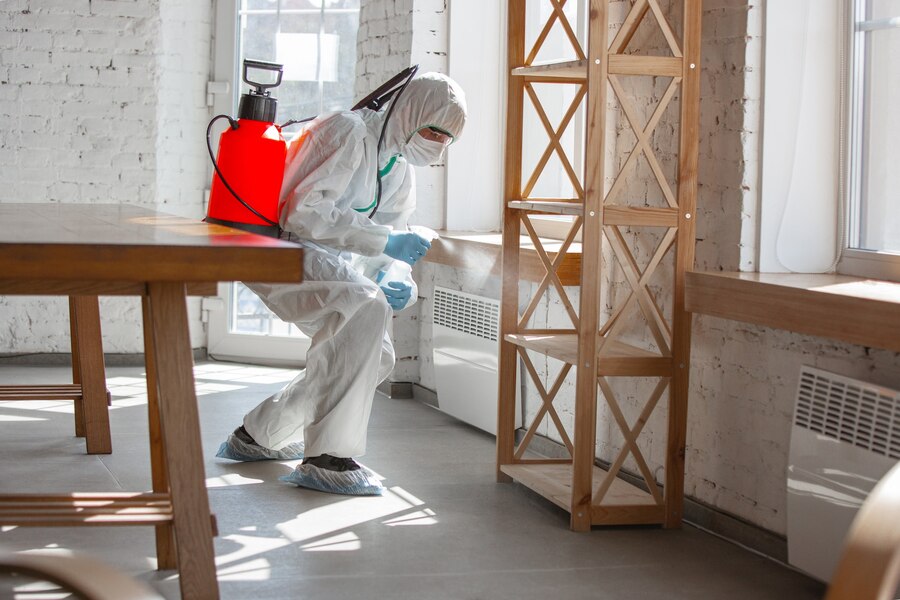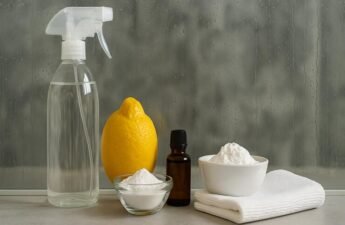Have you ever had the impression that after cleaning, your house smells more like a laboratory rather than a fresh space fit for welcoming someone? Those irritating smells from chemicals that remain days after you have completed scrubbing are very common. You’re hardly alone in that respect. The majority of therapeutics found in cleaning products emit fumes which foul the air, allergens, and other health hazards. But such problems do not imply that keeping one’s house clean comes with terrible odours. Ready to find out how? Here is a useful guide full of useful tips to get Rid of Cleaning Fumes and have your house looking as good as it smells.
1. Assess the Issue of Cleaning Odours
The majority of the products used for cleaning in offices contain ammonia, bleach, and various volatile organic compounds (VOCs), as per Bond Cleaning Biggera Waters. These substances could do a good job cleaning an area but may also have vapours that hang about in the atmosphere. Breathing these vapours for too long can result in headaches and respiratory and allergic reactions. To make a healthier home, it is not enough to just clean when cleaning but also the fumes left having cleaned them.
2. Transition to Less Toxic Or Eco-Friendly Cleansers
One of the effective ways to minimize the cleaning gas emanation while cleaning houses is to use low-fume manufacturing cleaning agents or eco-friendly ones. Most of the natural alternatives do not contain any chemicals but rather consist plant plant-based products and essential oils. For example:
White vinegar mixed with water provides a brilliant clean for all glass and countertops.
Baking soda will be the ideal cleaner for sinks, bathtubs, and tiles.
If purchasing from the store, low VOC or natural cleaners could be used.
These do work as well and allow your house to smell nice and fresh in a natural way.
3. Ensure Proper Airflow During The Cleaning Process
According to Best Bond Cleaners Gold Coast, good ventilation is essential in controlling the number of vapours emitted during and after the cleaning process.
Open Windows and Doors: This helps in bringing in fresh air and getting rid of the fumes inside the house.
Use Exhaust Fans: Activating the kitchen or bathroom fans will help in the expulsion of smells.
Create Cross-ventilation: This can be achieved by opening windows at opposite sides of the room to help create a wind that clears the air fast.
Make it a point, to practice ventilation after every cleaning session so as to avoid build-up of harmful fumes.
4. Eliminate Unpleasant Smells Using Natural Deodorizing Agents
Rather than covering up the cleaning odours with air sprays, it is better to eliminate them through natural deodorizing agents:
Activated Charcoal: This is usually kept in bowls and placed in various rooms of the house to prevent any stink.
Baking Soda: Can be poured onto carpets, left on furniture, or left in an open bowl to soak up any unwanted odours.
Vinegar: A tiny bowl can be kept to soak in the strong smell of gas fumes left behind. Don’t worry about the vinegar smell, it is not likely to last long.
Coffee Grounds: It is possible to keep used coffee grounds in a container which absorbs unwanted smells and provides a welcome scent at the same time.
5. Use Essential Oils for Cleaning
Essential oil scents do not only provide a pleasing aroma but they also have natural bacteria-fighting abilities. Pour some drops of different oil into homemade cleaning preparations, or diffuse them after cleaning the house to enhance the ambience. Common examples are:
Lemon oil: Has a bright and tangy scent, very effective in clearing odours.
Lavender oil: Has a warm and relaxing scent and is therefore best suited for use in sleeping areas.
Tea tree oil: Has organic and antiseptic properties, thus good for cleaning purposes.
6. Avoid Mixing Chemicals
The amalgamation of various cleaning agents, particularly those with ammonia or bleach poses a hazard due to the fumes released. Exercise caution and always follow the warnings on products accompanied by labels and do not mix any cleaners together unless otherwise instructed. Better yet, do not use more than one product, or consider using eco-friendly alternatives to ensure that your house remains clean and safe.
7. Clean Textiles and Fabrics
Experts say that odour particles can stick on surfaces such as curtains, carpets, and couches. For every surface cleaned, one may consider:
Laundry of curtains and cushion covers where necessary emphasis is placed on cleaning liquids used.
Carpeted floor’s effective cleaning is helpful in the removal of dust and dirt through vacuum cleaners and steam machines. It also helps to Remove Carpet Stains.
Soft surfaces can also be efficiently cleaned by emulsifying small quantities of water with a few drops of oil and spraying the mixture onto the surface.
As these items are maintained in a clean state, they help in preventing any undesirable smells.
8. Utilize House Plants to Clean the Air
Most indoor plants can eliminate harmful elements from the atmosphere and even enhance the air quality in your house. Some of these good plants include the following:
Peace Lily: Eliminates harmful compounds and enhances air quality.
Spider Plant: Low maintenance plant that helps in removing bad smells.
Areca Palm: A humidifier and air cleaner in one.
Adding greenery means cleansing the space more and improving the beauty of it at the same time.
9. Routine Maintenance of the Cleaning Equipment
Cleaning equipment which includes bathroom cleaning sponges, mop heads, or even cleaning rags can retain cleaning solution odor. After using them, rinse them well and clean them on a regular basis. Also, get new tools if the old ones are too worn out to prevent any smell from lingering even in the next cleaning.
10. Make Yourself Feel Refreshed in Natural Way
After the smoke has cleared, ensure that the house remains clean and smells fresh by employing these simple techniques:
Citrus Peel Simmer: Try adding orange and lemon rinds, along with some cinnamon sticks, in boiling water and you will have a homemade air freshener.
Homemade Room Spray: Take a spray can and start by filling it with water then add about a tablespoon of vodka, your favourite essential oil, and the air freshener is ready.
Ensure that Windows Are Open Every Day: In fact, allowing fresh air inside for a minute or two every day can be very effective.
Conclusion
A tidy living space should be invigorating, not suffocating. This can be achieved by using low-fume products, ventilating adequately, and making use of natural alternatives and one can say goodbye to cleaning vomits and have a space which is not only clean but warm and welcoming too.



